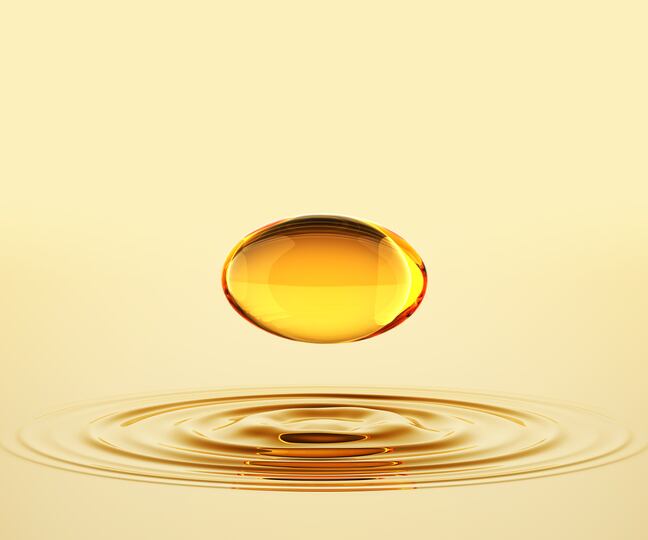The authors suggest that as carotenoids offer various health benefits, but their poor solubility and stability present challenges, chitosan-based delivery systems such as nanoemulsions, liposomes, polysaccharide nanoparticles, and nanogels could ensure better carotenoid availability and retention of nutritional value.
They add that as these delivery systems show results in enhancing the retention of carotenoids’ nutritional value, advancement in these systems could lead to the development of healthier and more effective dietary supplements.
Carotenoids and Chitosan
Carotenoids are natural compounds found in various organisms and plants but not produced by the human body.
In humans, carotenoids offer numerous health benefits, such as protecting against oxidative stress, enhancing vision, guarding against UV radiation, and potentially preventing diseases.
The nutraceutical sector is seeing the expansion of functional foods enriched with carotenoids, with estimations that the carotenoid market could reach almost USD 1.9 billion in 2027.
However, carotenoids are chemically unstable and easily degradable under environmental conditions—such as high temperature, oxygen, light, and pH—during food processing, storage, and gastrointestinal digestion, making them less accessible and available for absorption in the body.
To overcome these limitations, various delivery systems such as micro/nanoencapsulation via emulsions, powders, capsules, micelles, and hydrogel have been proposed.
Chitosan is a polysaccharide derived from chitin, possessing unique properties like biocompatibility, biodegradability, and low toxicity.
Chitosan-based carriers can reportedly improve accessibility in the intestines, and protect active compounds from degradation during processing and digestion.
The two most common types of chitosan-based carriers are lipid-based and biopolymeric nanocarriers.
Lipid-based systems involve coating nanoemulsions and nanoliposomes with chitosan, while biopolymeric systems use chitosan alone or combined with other polysaccharides to create polysaccharide-based vehicles and biopolymeric nanogels.
Chitosan-based carriers
The authors report that chitosan-coated nanoemulsions (NEs), characterised by small droplet sizes either as oil-in-water or water-in-oil, are a promising method for delivering bioactive molecules.
In one study, chitosan was used to coat β-carotene-loaded NEs. Compared to uncoated β-carotene NEs, WSC-BC-NEs exhibited enhanced stability, retaining 82% of β-carotene content after 21-day storage at 37 °C and 77.6% after 21-day UV light exposure at room temperature.
The authors therefore suggest that water-soluble chitosan coating could be an effective strategy in the food industry to produce β-carotene emulsions with enhanced stability.
The authors report that chitosan-based nanocarriers are also effective in enhancing the stability and bioavailability of poorly soluble bioactive molecules compared to lipid- or protein-based nanocarriers.
One study developed water-soluble low-molecular-weight chitosan (LMWC) nanoencapsules containing lutein. These nanoencapsules significantly improved lutein's bioavailability in both in vitro and in vivo tests, with higher lutein levels in the plasma, liver, and eyes of mice compared to non-encapsulated lutein.
Another evaluated the encapsulation of astaxanthin in different polymers. Poly(ethylene oxide)-4-methoxycinnamoylphthaloyl-chitosan (PCPLC) exhibited high encapsulation and loading efficiency, along with excellent stability at high temperatures.
A third study encapsulated β-carotene in microparticles using chitosan/sodium tripolyphosphate or chitosan/carboxymethylcellulose, with both formulations achieving over 95% encapsulation efficiency.
The authors add that chitosan-coated nanoliposomes (chitosomes), versatile nanoscale structures made up of concentric phospholipid bilayers with an aqueous core, can carry both hydrophilic and hydrophobic molecules effectively, enhancing bioaccessibility, bioavailability, and stability of encapsulated compounds.
Previous research showed that due to their encapsulation in liposomes, carotenoids showed an increase in antioxidant activity.
Another study found that nanoliposomes loaded with β-carotene from marine phospholipids were smaller, better at inhibiting lipid peroxidation, and stable at 4 °C for 70 days.
The authors also draw attention to chitosan-based nanogels, hydrogel nanoparticles formed by cross-linking chitosan.
These nanogels have been found to be highly efficient drug delivery systems with benefits such as easy preparation and low toxicity.
One study focused on chitosan-glycolipid nanogels loaded with fucoxanthin (Fx), a carotenoid found in brown algae with antioxidant properties.
The researchers used an ionic-gelation method to encapsulate Fx within chitosan dispersed in glycolipid, concluding that the nanoencapsulation improved Fx's bioavailability.
The authors of the new review conclude: “Research studies have demonstrated that chitosan-based delivery systems can significantly increase the bioavailability, stability, and efficacy of carotenoids.
"However, further research is required to study the safety and efficacy of carotenoids using chitosan-based delivery systems.”
Journal: Nutraceuticals
https://www.mdpi.com/1661-3821/3/3/33
“Enhancing Carotenoids’ Efficacy by Using Chitosan-Based Delivery Systems”
Authors: Alessandra Verardi, Paola Sangiorgio, Catia Giovanna Lopresto, Patrizia Casella, and Simona Errico.


